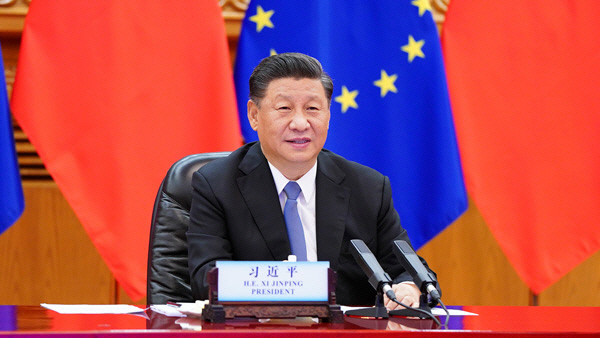Observation of paving stones to break down the US public siege
Anti-Chinese sentiment homework such as corona responsibility in Europe
 viewer
viewer
With the era of Joe Biden in the US, China, which is competing for world supremacy, is drawing attention as it is strengthening ties with the European Union (EU), an alliance of the United States.
This is interpreted as a strategic move to overcome the strategy of US President-elect Biden, who, unlike US President Donald Trump, tries to strongly pressure China through solidarity between alliances.
China has been working hard for the past seven years to sign an investment agreement with the EU.
In particular, since the inauguration of the Trump administration, the United States has pressured EU member states to increase sanctions against Chinese companies, including Huawei, so China is expected to attempt to break down the US siege by signing an investment agreement with the EU this year.
The aim of this agreement is for European companies to gain unprecedented market access in China, such as telecommunications, finance, and electric vehicles.
This can be interpreted as meaning that European companies can enjoy a more favorable investment environment in China than US companies.
As the EU already maintains a high level of openness to foreign investment, the agreement is focused on the EU to further benefit from investment in China.
For China, it may be a damage on the surface, but considering the time when the next administration of Biden is about to launch, the analysis is cautious as it is not a bad business.
In fact, some EU member states were participating in the U.S. pressure on China, such as Sweden’s decision to ban Huawei and ZTE’s use of equipment in its fifth-generation mobile communications (5G) network in October.
In addition, China has already signed the Regional Comprehensive Economic Partnership Agreement (RCEP) with 14 countries, including South Korea and Japan, which are allies of the United States, to avoid the US pressure on China. This is the expressed situation.
The EU seems to have joined hands with China, which puts’China Money’ ahead, as a part of overcoming the severe economic recession caused by the re-proliferation of the novel coronavirus infection (Corona 19).
However, pessimism is prevalent that solid solidarity is not easy as negotiations have been concluded based on interests rather than deep bonds between China and the EU, such as’Corona 19 China’s responsibility to China’.
The investment agreement between China and the EU must be ratified by the 27 EU member states and the EU Parliament. Accordingly, it may take at least several months to a year for the actual conclusion or implementation of the agreement. In the case of the EU Parliament, regulations for the protection of workers, such as the ban on forced labor, are important.
In this process, if the Biden administration promotes strengthening the EU alliance, raises China’s responsibility for Corona 19, and publicizes China’s enforcement of the Hong Kong National Security Law and issues of Uighur human rights, there is a possibility that the passage of the EU Parliament will be missed.
/ Reporter Park Woo-in [email protected]
< 저작권자 ⓒ 서울경제, 무단 전재 및 재배포 금지 >
